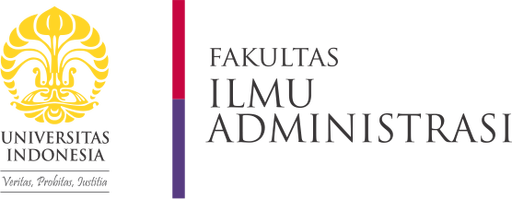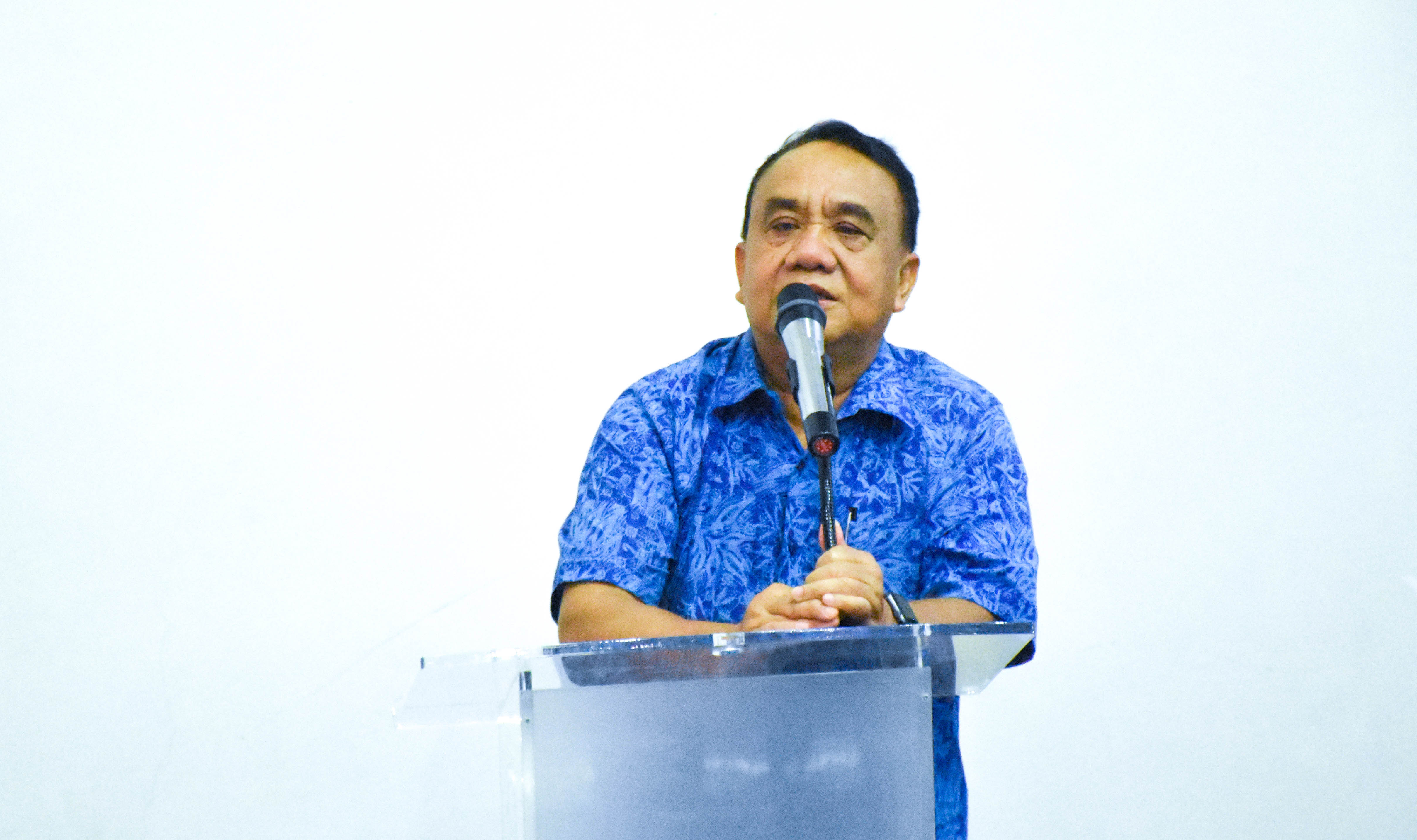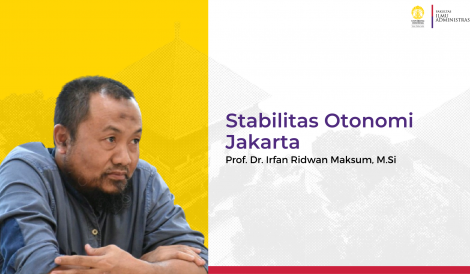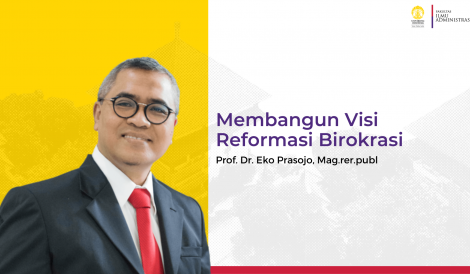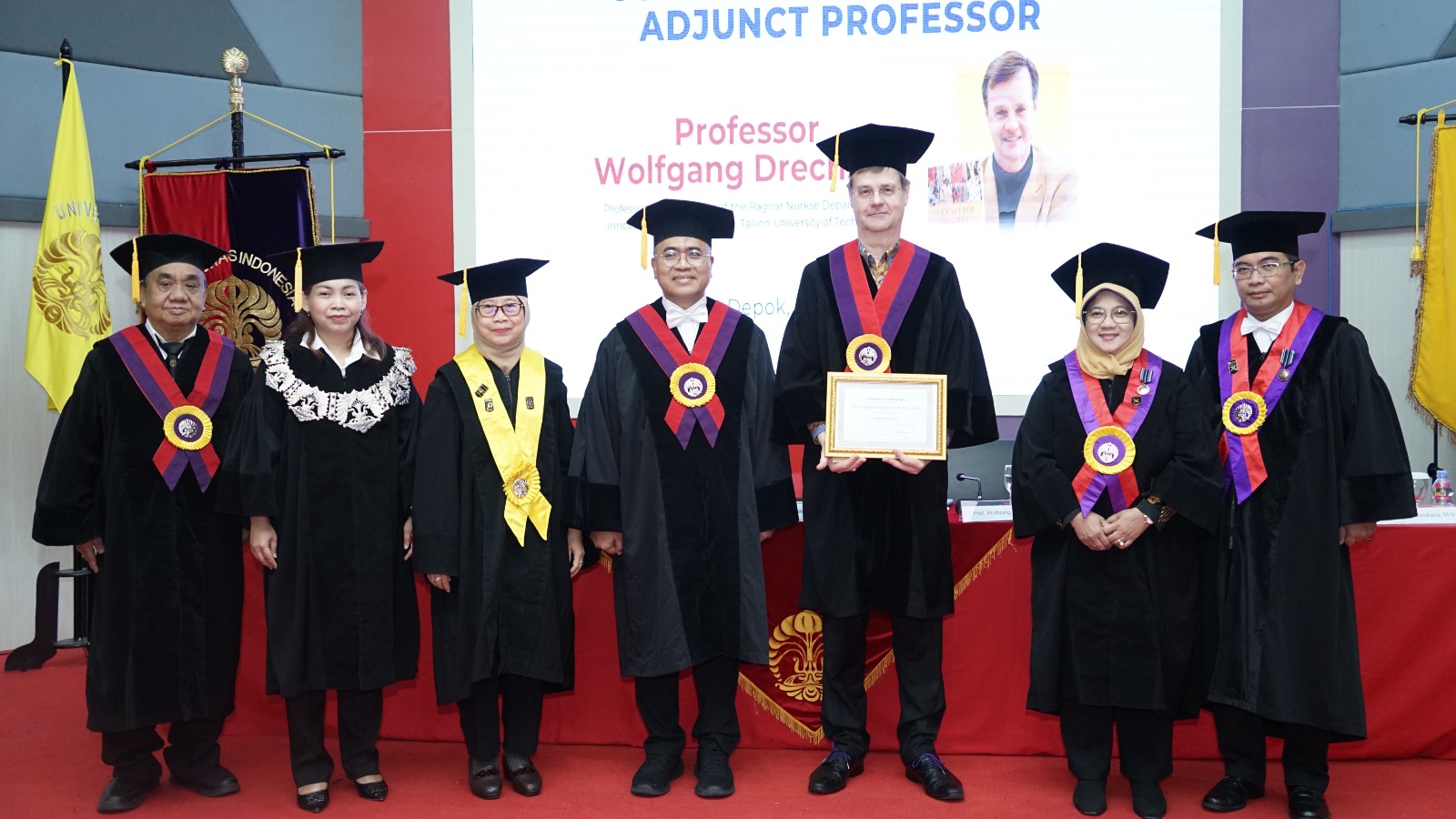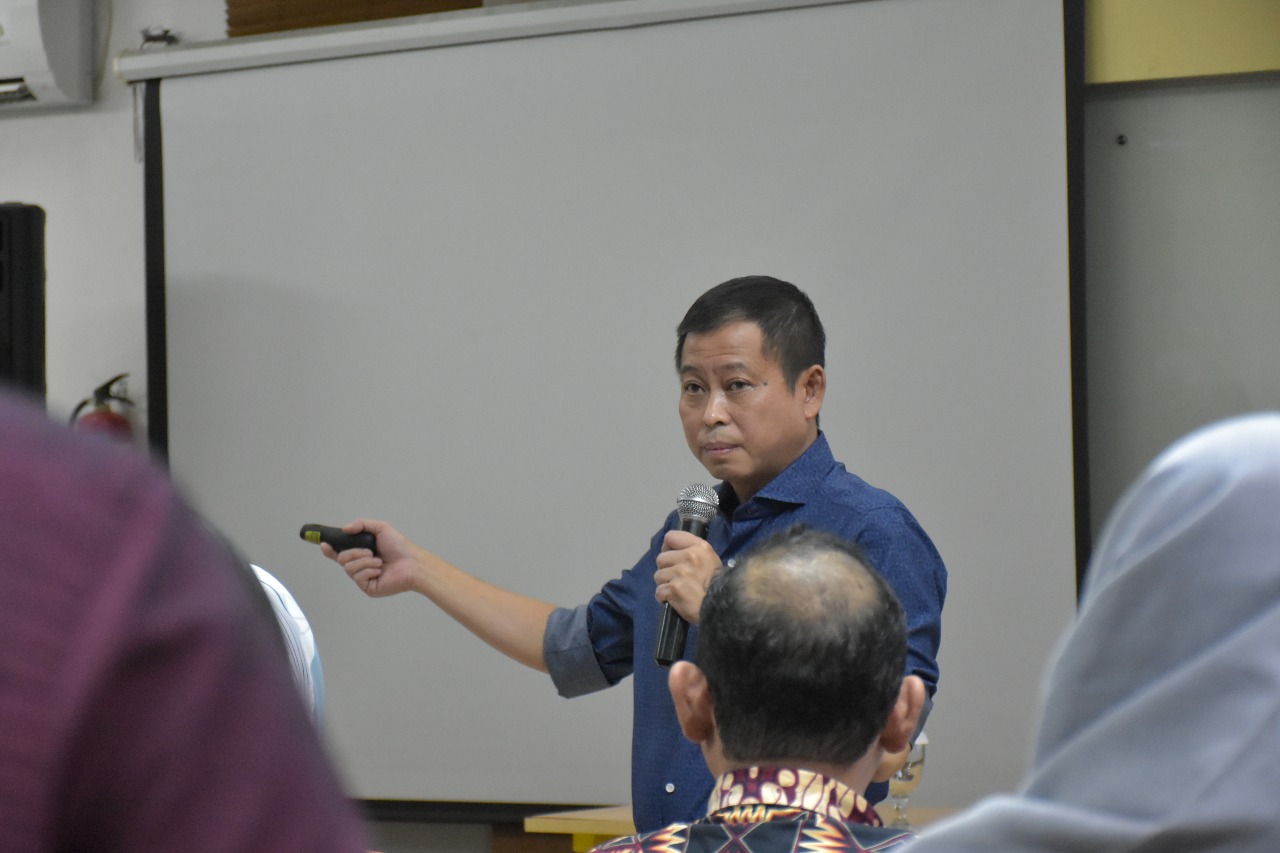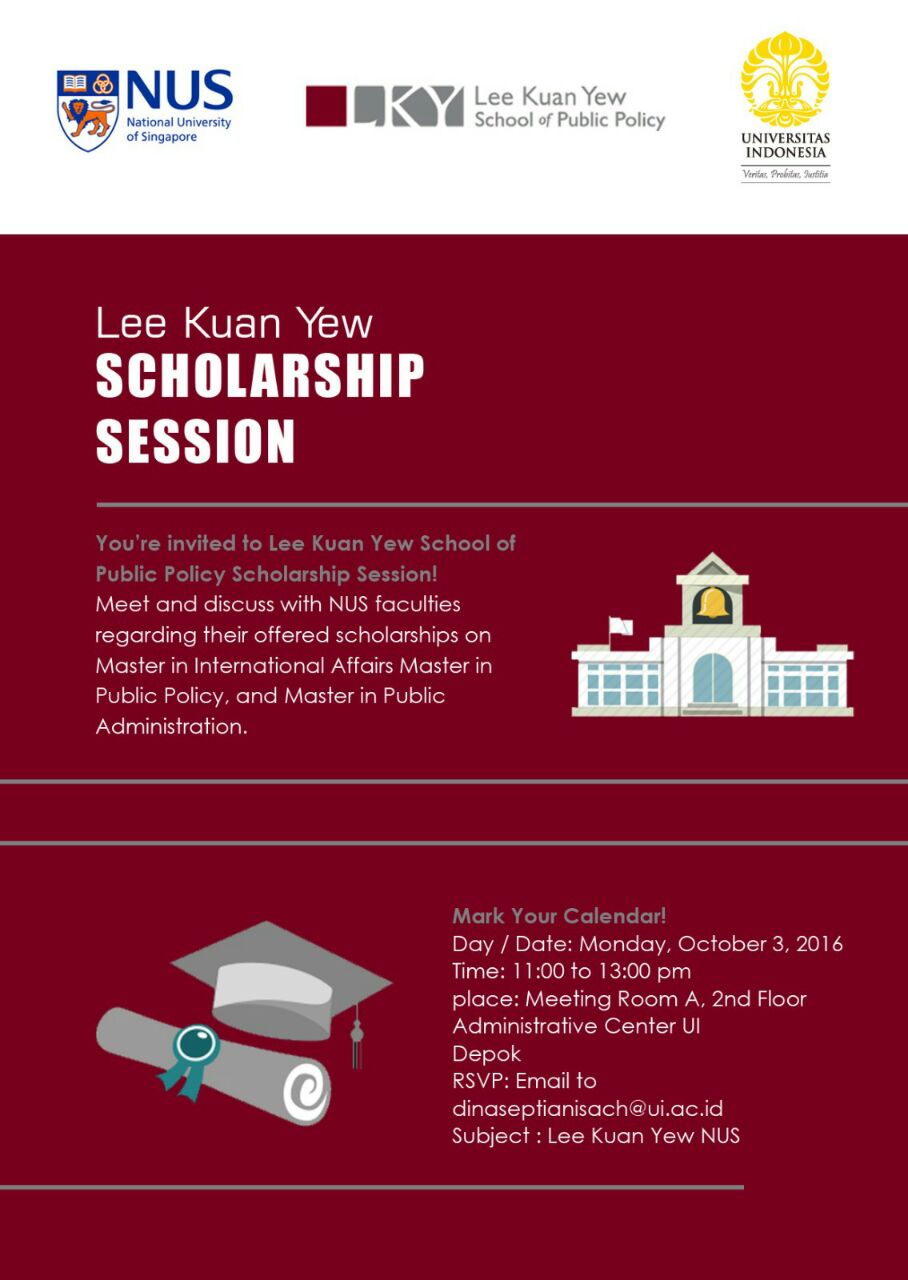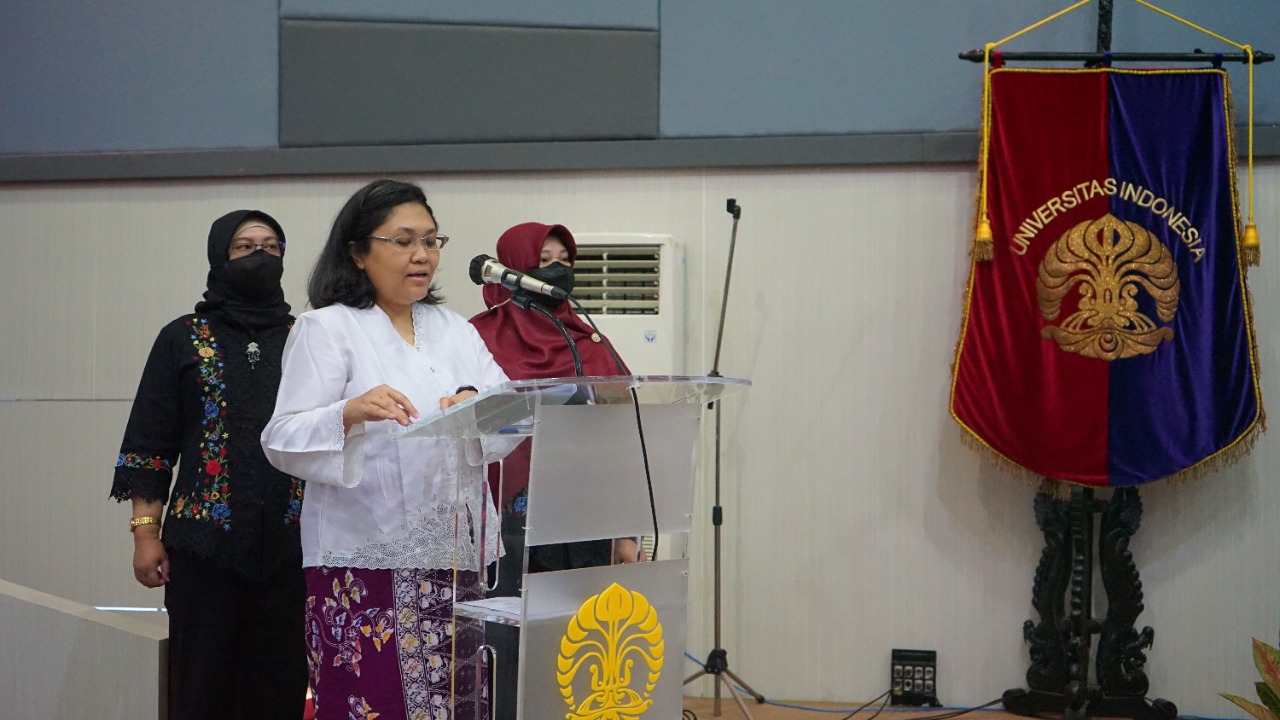Exploring the Positive Side of the Pandemic in Accelerating Public Sector Reform was a topic raised in the 7th FIA UI Virtual Talks Anniversary Series on Tuesday, March 8, 2022. This event presented speakers from 3 countries including Dr. Reginald G. Ugaddan from the University of the Philippines, Professor Mark Considine from the University of Melbourne, and Professor Martani Huseini from the University of Indonesia.
Prof. Martini, who is a professor at FIA UI, began his material by quoting a statement from Clayton Christensen, namely “Most companies perceive disturbance as a threat. But disruptive innovation has tremendous growth potential. If incumbent companies can learn how to harness the power of disruption, they can also increase their ability to create new business growth.”
Prof. Martini explained the topic of the impact of the pandemic on the acceleration of innovation in the Indonesian public sector by discussing the dual disruption and “New Normal” civilization that occurred during the pandemic. Prof. Martini is of the opinion that the pandemic period creates an unavoidable pressure from conditions of technological disruption. According to him, this problem is a very interesting thing to be developed and researched at the present time.
“New digital platforms and ecosystems, industry 4.0 adaptation of new technologies, adaptation in metaverse connotations (big data, ai., ar, blockchain, etc.), New digital platforms & ecosystems, industry 4.0 adoption of new technologies, adaptation of metaverse conditions (big data, ai, ar, blockchain, etc). Digital-based public services must adopt and implement new platforms & ecosystems. Innovations must be created to strengthen the foundation of e-gov and agility in providing public services in Indonesia to be more efficient, trustworthy, reliable, in getting public support,” he said.
Prof. Martini said that this pandemic, which is not only happening in Indonesia, worries him. The reason is that no one knows when this pandemic will end even though many predict when it will end. Prof. Martin argues that this sudden onset of the pandemic implies the innovation of a new style of government to balance public health policies and protocols to secure that other sectors such as social and economic must be mitigated and protected.
“World digital collaboration and innovation in public services is an important thing to discuss. Embracing and changing the paradigm in digital collaborative governance in managing & controlling the covid19 pandemic (orchestration is not done very well) due to the influence of various things, “said Prof. Matani.
In addition, offline schooling or lectures are also not carried out optimally, communication regarding vaccination programs has not been effective, distribution of social services during the pandemic has not been perfect, and government collaboration in dealing with conditions of double disruption is still lagging behind.
Prof. Martani conveyed that the best practices in health services in Indonesia during the pandemic were carried out digitally. Among them is telemedicine remotely using halodoc, halomedica, and others. The second is EHAC which is one of the conditions for the movement of every Indonesian community during the pandemic. Next is the dissemination of health information through social media and online symposiums and teleconferences. “Lastly is a database or big data that can detect the location of the community and how the government can distribute drugs and things related to improving health during a pandemic,” added Prof. Martani.
At the end of his material, Prof. Martini conveyed about his abilities and experiences in teaching and learning. These abilities include knowing how to carry out teaching and learning activities in universities through webinars, Zooming, synchronous & asynchronous, teaching systems & Blended-learning. Second, preparing, updating teaching materials using digital media is very convenient, and practicing being a content provider is quite a challenging experience.
“As my subjects to teach related to digital marketing and innovative governance, efficiency in library research, benchmarking best practices can be done efficiently. In real-world practice, digital marketing can be supported by social media, YouTube, credit earning activities (CEA) marketplace applications, cross-disciplinary, cross-campus, cross-country can be implemented to fulfill a complete degree, “he said.
Prof. Martini revealed that the pandemic did not only bring bad effects, but there were good impacts that we can get from the current period. Prof. Martini argues that the pandemic has brought acceleration of innovation in the telemedicine public sector, easier tracking of the pandemic, tracing, treatment for databases, big data in relation to the government’s new public policy approach, ease of synchronizing single data for passports, ID cards, driving licenses.
“In addition, there are now conveniences in the distribution of basic necessities, certification, education support systems, making it easier for local governments to support independent “PTSP” integrated services, Online Single Submission (OSS), lowering the prices of consumer products and services due to the elimination of essential distribution costs, and more it’s easy to hold meetings, seminars, etc. – across borders, across countries,” he concluded.
Not only delivering material, Prof. Martani asked Mark about the difference between handling the pandemic in Australia and Indonesia. “How is the communication problem with the tribal community, namely the Aboriginal Tribe, is your side having difficulties? Because in Indonesia, we encounter various communication problems between various ethnic groups, especially in the vaccination process,” he asked.
Mark replied that Australia was having communication problems because of the different background conditions of different peoples across the country. The way they take is to use a key person in a community to communicate and convey the intentions of the government to the community. In addition, many also question the safety and conspiracies that accompany vaccination. To deal with this, the government is increasing communication in terms of language and important people in a community who question it.
